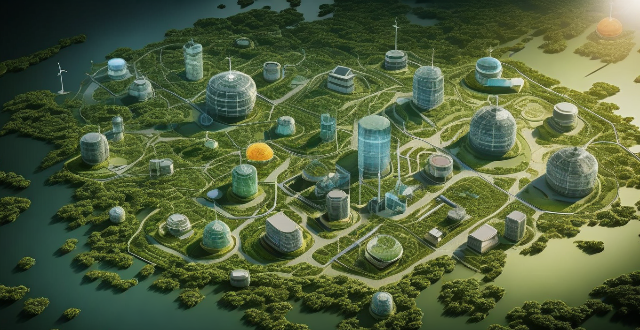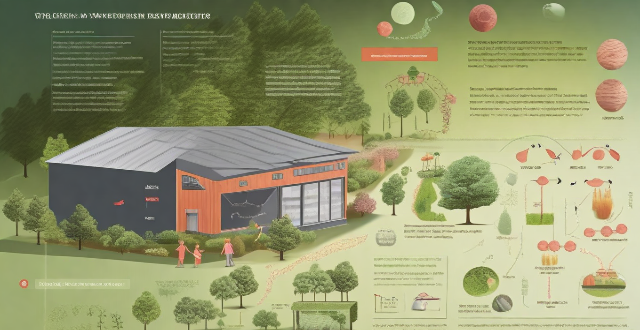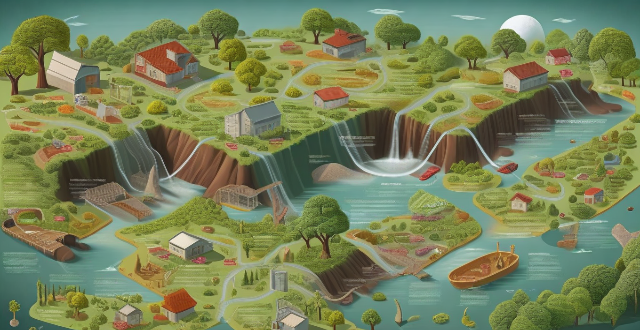Human Earth

What are the potential benefits of establishing a permanent human settlement on Mars ?
The potential benefits of establishing a permanent human settlement on Mars include scientific advancements, economic opportunities, inspiration and cultural impact, and ensuring the survival of humanity. Studying Mars in greater detail can provide insights into the formation and evolution of our solar system and help us understand how life emerged and is sustained on Earth. The development of new technologies required for a Mars settlement would have applications on Earth as well, leading to advancements in technology and engineering. Resource extraction and utilization, as well as commercialization of space travel, could create new economic opportunities. A diverse community on Mars could promote cultural exchange and understanding among different nations and backgrounds, while also inspiring future generations to pursue careers in STEM fields. Finally, having a self-sustaining colony on Mars could ensure the survival of humanity in case of a catastrophic event on Earth.

Is the greenhouse effect a natural phenomenon or human-induced ?
The greenhouse effect is a natural process that helps maintain Earth's climate, but human activities have significantly increased greenhouse gas concentrations, leading to an enhanced or "human-induced" effect. This has resulted in global warming and other environmental issues, such as rising sea levels, extreme weather events, and ocean acidification.

How will commercial space tourism change the way we view Earth and space ?
The advent of commercial space tourism is set to revolutionize our understanding of both Earth and space by making space travel more accessible. It allows us to view our planet from a different perspective, fostering a greater sense of global awareness and interconnectedness, as well as an appreciation for the fragility and beauty of our planet. Additionally, it provides the opportunity for people to experience space firsthand, leading to a deeper understanding of the challenges and opportunities presented by space exploration, renewed interest in science and technology, and increased demand for education in STEM fields. Overall, commercial space tourism has the potential to change the way we view Earth and space by providing unique perspectives and experiences that can help us better appreciate our planet and expand our understanding of the universe beyond.

How can we ensure that climate action is consistent with human rights ?
To ensure that climate action is consistent with human rights, we need to adopt a holistic approach that takes into account the social, economic, and environmental dimensions of sustainability. Some strategies include recognizing the interdependence between climate action and human rights, integrating human rights into climate policy, ensuring transparency and accountability, promoting participatory democracy, strengthening legal frameworks, and building capacity and providing support to vulnerable populations. By doing so, we can create a more equitable and just world for all.

What are the legal frameworks for addressing climate change and human rights ?
The text discusses the various legal frameworks that exist to address climate change and human rights, including international agreements, national laws, and regional regulations. It highlights the importance of a multifaceted approach to tackle this complex issue and emphasizes the need to protect vulnerable communities' rights in the process. The text also provides examples of specific initiatives taken by different entities such as the United Nations, the United States, the European Union, the African Union, and the Association of Southeast Asian Nations. Overall, the text suggests that by working together at these different levels, we can create a more equitable and sustainable future for all.

Can climate change be considered a human rights issue ?
The text discusses the impact of climate change on human rights, focusing on health and safety, access to resources, displacement and migration, and intersectionality. It argues that climate change can be considered a human rights issue because it has the potential to violate several fundamental rights enshrined in international law. The text concludes that addressing climate change is crucial for protecting and promoting human rights globally.

What are the causes of the greenhouse effect ?
In this article, we explore the natural and human-intensified causes of the greenhouse effect and its potential consequences. The greenhouse effect is a process where certain atmospheric gases trap heat from the sun, warming the Earth's surface. Human activities such as burning fossil fuels, deforestation, and agricultural practices have increased the levels of these gases, leading to an intensified greenhouse effect and contributing to global warming. The consequences of an intensified greenhouse effect include rising temperatures, melting ice caps and glaciers, extreme weather events, ecosystem disruption, and impacts on human health. To address these challenges, collective action is needed to reduce greenhouse gas emissions and transition to sustainable practices.

Can AI replace human decision-making in complex situations ?
Artificial intelligence (AI) has made significant strides in recent years, leading to discussions about its potential to replace human decision-making in complex situations. While AI possesses certain advantages, such as speed and accuracy, it still faces limitations that prevent it from fully replacing humans in decision-making processes. Advantages of AI in decision-making include speed and efficiency, accuracy and consistency, and scalability. However, AI also has limitations such as lack of creativity, ethical considerations, and interpretability. Examples of complex situations where AI may not replace human decision-making include medical diagnosis, legal judgments, and business strategy. In conclusion, while AI has the potential to assist humans in decision-making processes, it cannot fully replace them in complex situations. The combination of AI's analytical capabilities and human creativity, ethics, and intuition will likely lead to better outcomes in these scenarios.

What is the difference between global warming and the greenhouse effect ?
Global warming and the greenhouse effect are two interconnected phenomena that have a significant impact on Earth's climate. The greenhouse effect is a natural process where certain gases in the atmosphere trap heat from the sun, helping to maintain a stable climate on Earth. On the other hand, global warming is an ongoing phenomenon caused primarily by human activities such as burning fossil fuels and deforestation. While both involve greenhouse gases and their impact on Earth's climate, there are key differences between them, including their cause, duration, impact, and potential solutions.

What are the responsibilities of governments in addressing climate change and protecting human rights ?
Governments worldwide have a crucial role in addressing climate change and protecting human rights. Their responsibilities include legislation, public awareness, research, international cooperation, adaptation measures, protection of human rights, alignment with Sustainable Development Goals, and monitoring progress. By taking proactive steps in these areas, governments can create a sustainable future for all citizens while respecting their fundamental rights.

How does the greenhouse effect work ?
The greenhouse effect is a natural process essential for life on Earth, where certain gases trap the sun's energy, warming the planet. Human activities have increased these gases' concentration, leading to an enhanced greenhouse effect and global warming. The process involves sunlight absorption, re-emission as infrared radiation, trapping by greenhouse gases, and planetary warming. Human impact includes increased emissions from burning fossil fuels and deforestation, leading to rising temperatures, extreme weather events, sea level rise, and habitat loss. Urgent action is needed to mitigate these environmental challenges.

How might global warming influence future patterns of human migration ?
Global warming is poised to significantly influence future patterns of human migration through various channels, including sea level rise, changes in agricultural zones, extreme weather events, economic impacts, health considerations, and social and political factors. These changes will contribute to shifts in where and how humans choose to live, forcing coastal communities to relocate, increasing the risk of flooding in currently habitable areas, movement away from regions that become too hot or dry for farming, shifts toward more favorable climates for growing crops, increased frequency and intensity of extreme weather events, decline in traditional industries like fishing or agriculture in certain regions due to changing conditions, growth in new industries related to renewable energy or climate adaptation in other areas attracting workers, spread of diseases like malaria and dengue fever to new regions as the organisms that carry them move into warmer areas making some areas less hospitable for human habitation due to heat-related illnesses becoming more common, conflicts over resources like water and arable land which may be exacerbated by climate change, and government policies on resettlement and climate adaptation measures that could either facilitate or hinder migration.

What is the greenhouse effect ?
The greenhouse effect is a natural process that warms the Earth's surface through the trapping of heat by greenhouse gases. These gases include carbon dioxide (CO2), methane (CH4), and nitrous oxide (N2O), which are released by various human activities and natural processes. The greenhouse effect is essential for life on Earth, but human-induced enhancement of this effect has led to global warming and associated environmental issues.

How has the greenhouse effect affected the climate over time ?
The greenhouse effect is a natural process that warms the Earth's surface by trapping heat from the Sun. However, human activities have increased the concentration of greenhouse gases in the atmosphere, leading to an enhanced greenhouse effect and global warming. This has resulted in rising global temperatures, melting ice caps and glaciers, more frequent and severe extreme weather events, changes in ecosystems and biodiversity, and ocean acidification. To mitigate these effects, it is crucial to reduce our reliance on fossil fuels, promote renewable energy sources, protect forests and other natural habitats, and adopt sustainable practices in agriculture and industry.